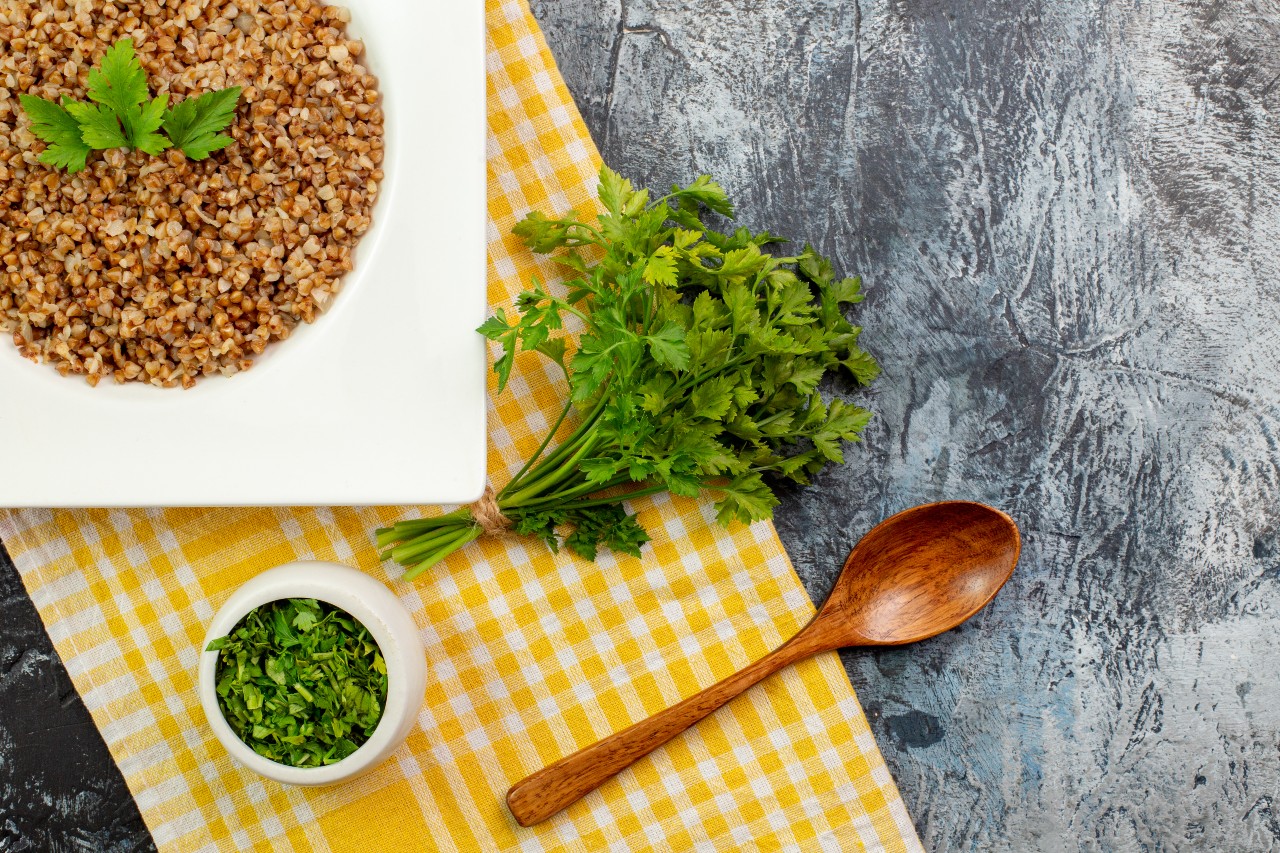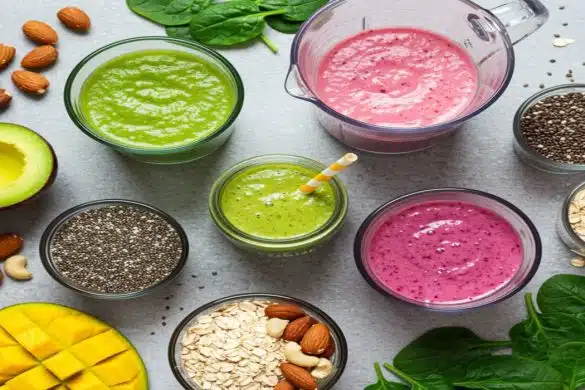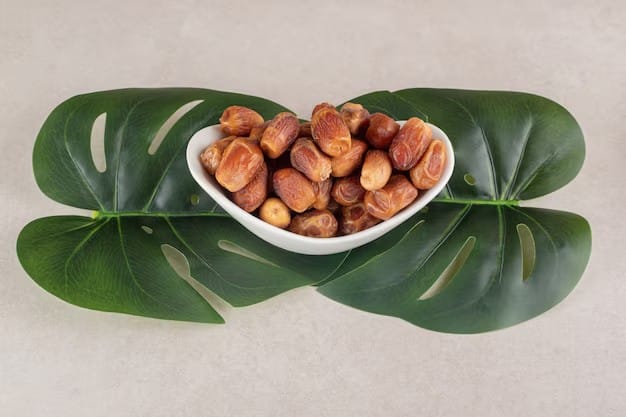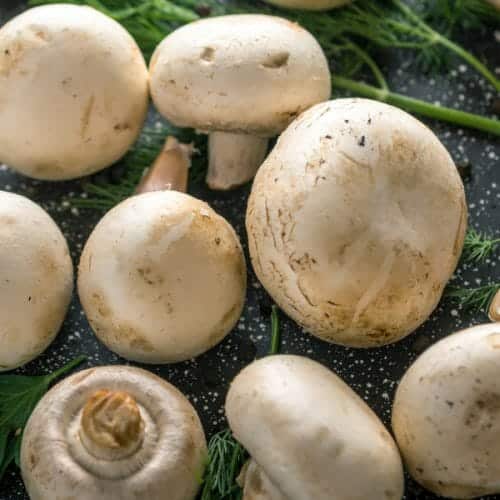Fenugreek leaves, also known as meth leaves, are a staple ingredient in Indian households. These leaves are used in various indian dishes to spice up the flavour while providing numerous health benefits. You’d be surprised to know that methi is good for people with diabetes, digestive issues, and those with problems with skin and hair health. No wonder why our moms insist on feeding us this nutrition-packed ingredient. If you’re still apprehensive about consuming Fenugreek leaves, this blog is for you. We have uncovered everything you need to know about these leaves, from their benefits to their side effects and safety rules.! Let’s get into it.

close up green leaves nature
9 Fenugreek Leaves Health Benefits
Fenugreek leaves bring many health benefits because of their diverse medicinal properties. These green leaves lead to improved gut health, lower blood sugar levels, lower cholesterol, and improved reproductive health in both men and women. Considering these wide-ranging health benefits, it turns out that fenugreek is more than just a spice for curries and stir-fries; it’s indeed a powerhouse of health advantages. Here are some health benefits of methi you need to know.
Cholesterol Management
High cholesterol levels can lead to diseases like atherosclerosis, which occurs due to the build-up of fat deposits within the arteries, leading to stroke, high blood pressure and heart failure over time. Fenugreek leaves are a valuable tool in managing cholesterol levels.
They contain saponins that interfere with the absorption of cholesterol and bile acids in the intestines, reducing the amount of cholesterol that the body absorbs from food. Furthermore, these leaves also increase the secretion of bile acids by the liver, which further helps eliminate excess cholesterol from the body. Thus, incorporating fenugreek leaves into your diet can assist in maintaining a healthy balance of cholesterol levels and contribute to heart health.
Weight Management
Obesity and unhealthy weight gain can lead to life-threatening conditions such as diabetes and heart disease. Often, overeating proves to be the primary culprit behind unhealthy weight gain. Interestingly, fenugreek leaves prove to be helpful in this context due to their high dietary fibre content.
Dietary fibre slows down your digestion rate and makes you feel full for longer, assisting in reducing caloric intake and preventing overeating. Studies highlight the satiating properties of fenugreek leaves that can help control cravings, thereby aiding you in achieving your weight management goals when complemented with a balanced diet and regular physical activity.
Also read: 20+ Easy and Delicious Healthy Lunch Recipes for Weight Loss.
High in Antioxidants
Another significant benefit of fenugreek leaves is their high antioxidant content, primarily due to vitamins C, A, and beta-carotene. These antioxidants counteract the damaging effects of free radicals – harmful compounds in our bodies leading to cell damage, inflammatory conditions, infections, and cancer.
The body produces free radicals as by-products of various metabolic processes, and an increase in these compounds can damage cells and lead to health disorders. Adding fenugreek leaves to your daily diet can boost your body’s own antioxidant defences, protect your cells from free radical damage, and thereby strengthen your overall health and immunity.
Diabetes Control
Fenugreek leaves have been acknowledged for their beneficial role in managing diabetes, a lifestyle disease affecting millions of people across the globe. Regular consumption of fenugreek helps regulate blood glucose levels, owing to its high fibre content that slows down the absorption of carbohydrates and sugars.
An essential amino acid present in fenugreek, 4HO-Ile, exhibits anti-diabetic properties. It stimulates insulin secretion and enhances insulin sensitivity, maintaining stable blood glucose levels. So, adding fenugreek to your diet can be a natural way to control blood sugar and prevent Type II diabetes.
Also read: 20 Easy Diabetic Dinner Recipes Indian Cuisine
Improves Digestive Health
Fenugreek leaves demonstrate remarkable efficiency in improving digestive health due to the presence of high dietary fibre. This fibre acts as food for friendly gut bacteria and aids in proper digestion. Here are some ways in which fenugreek leaves contribute to digestive health:
- The fibre in fenugreek has water-absorbing properties, which makes the bowel softer and easier to excrete, easing constipation.
- Regular intake of fenugreek leaves can help prevent indigestion, leading to a healthy digestive system.
- Fenugreek has anti-inflammatory properties, reducing inflammation in your digestive tract.
- Fenugreek leaves also contain compounds that help soothe gastric ulcers and symptoms of acid reflux.
Considering all these benefits, including fenugreek leaves in your diet, can safeguard your digestive health.
Supports Kidney and Liver Function
Your kidneys and liver play crucial roles in maintaining your overall health, and proper functioning of these organs is essential. Fenugreek leaves exhibit protective effects on both these organs. They contain potent antioxidants that can help decrease the risk of kidney stones by reducing oxidative stress and damage.
Their anti-inflammatory properties inhibit calcium deposition in the kidney, preventing renal tissue injury. Moreover, fenugreek may also reduce damage to liver cells caused by toxins like alcohol and an unhealthy diet. It helps reduce the activities of harmful enzymes that can lead to liver cirrhosis and other liver-related issues. Consuming fenugreek regularly can help ensure robust kidney and liver function.
Fenugreek Leaves Benefits for Hair and Skin
Loaded with vitamin C, fenugreek leaves have antioxidant properties that guard against inflammatory skin conditions. Vitamin C also stimulates collagen synthesis, providing firmness to your skin and delaying signs of ageing. Fenugreek can moisturise dry skin due to its mucilage content and can be used as a natural remedy for skin issues.
The omega-3 and -6 fatty acids present in fenugreek can prevent follicle inflammation, preventing hair loss and promoting hair growth. The protein and nicotinic acid content in fenugreek may also aid in preventing hair fall and dandruff when consumed as a part of one’s diet. Therefore, fenugreek leaves can support healthier skin and hair when incorporated into cooking routine.
Female Reproductive Health and Lactation
Fenugreek has been traditionally used to address women’s health issues, particularly those related to reproductive health and lactation. It can help alleviate menstrual cramps and manage irregular periods by inducing uterine contractions.
Fenugreek also eases symptoms associated with menstrual discomfort, such as fatigue, making it a useful dietary addition for many women. Additionally, fenugreek contains diosgenin and phytoestrogen compounds that mimic the female hormone estrogen.
Male Fertility Enhancement
Fenugreek also holds potential benefits for men’s reproductive health and testosterone levels. Compounds, including alkaloids and flavonoids found in fenugreek, help enhance sperm count and quality, thus aiding fertility. Consuming fenugreek can be a natural step towards enhancing male reproductive health and improving fertility.
How to Incorporate Fenugreek Leaves into Your Diet?
Incorporating fenugreek leaves into your diet can be both simple and delicious. You can utilise them as fresh leaves for a leafy vegetable or as dried leaves known as ‘kasoori methi,’ which act as a flavouring agent. You can add them to various preparations, including curries, stir-fries, and parathas. You can also use them as a garnish in lentils, paneer, and meat-based dishes. Traditional medicine has even utilised fenugreek tea to treat fever.
Incorporating Fresh Leaves and Dried Leaves Into Your Diet
When it comes to choosing between fresh and dried fenugreek leaves, think about where you want to use them. Fresh fenugreek leaves, with their subtle bitterness, work similarly to spinach or kale, adding an earthy flavour to stir-fries, curries, or soups. On the other hand, dried fenugreek leaves, referred to as ‘kasoori methi,’ have a slightly sweeter, more concentrated flavour that enhances curries and stews.
- Fresh Fenugreek Leaves:
- Offer a subtle bitterness and earthy flavour.
- Ideal for stir-fries, curries, and soups.
- It can be used in larger quantities, similar to leafy greens like spinach or kale.
- Dried Fenugreek Leaves (‘Kasoori Methi’):
- Have a sweeter, more concentrated flavour profile.
- Best for seasoning curries, stews, and gravies. Dried fenugreek leaves benefits are abundant.
- It requires careful use to avoid overpowering bitterness in dishes.
- Nutritional Benefits:
- Both fresh and dried fenugreek leaves are highly nutritious and beneficial for health.
- Choosing Between the Two:
- Depends on your personal preference and the specific culinary application.
Fenugreek Leaf Recipes
Fenugreek leaves can be used in a plethora of delectable and healthy recipes. Here are quick recipes you can try:
Fenugreek Leaf Salad: All you need are fenugreek leaves, chopped onions, chopped tomato, olive oil, lemon juice, jaggery, and crushed pepper. Sauté the onion and fenugreek leaves, mix with tomatoes and season with pepper, lime juice, and salt.
- Fenugreek Soup: This nutritious soup requires Fenugreek leaves, tomato, crushed garlic, crushed black pepper, water, chopped onion, and olive oil. Sauté onion, garlic, and fenugreek leaves, then add tomatoes and water. After bringing the mixture to a boil, season it with salt and pepper.
- Fenugreek Herbal Tea: Fenugreek tea is a simple, soothing way to enjoy the health benefits of this herb. Here’s how to make it:
- Boil water and add 1-2 teaspoons of dried fenugreek leaves or seeds.
- Let it steep for 5-10 minutes.
- Strain into a cup and add a dash of honey or lemon for flavour.
These two recipes offer an excellent example of how easily you can incorporate fenugreek leaves into your daily diet, making it both a nutritious and appetising addition to meals.
Potential Side Effects of Fenugreek Seed

top view tasty cooked buckwheat inside plate with greens light grey table
Beware, anything in excess is dangerous. Excessive fenugreek leaves can cause allergic reactions, stomach issues, or discomfort in those with inflammatory bowel disease. Pregnant women and diabetics should consult a doctor before use.
Allergies and Inflammatory Bowel Disease
Allergic reactions to fenugreek are rare but can include itching, throat irritation, or nausea, requiring immediate medical attention. Those with inflammatory bowel disease should consume it in moderation due to potential discomfort from its high fiber content. Start with small amounts and increase gradually based on tolerance.
Pregnancy and Lactation Concerns
Fenugreek can help boost milk production in breastfeeding women, but pregnant women should consult their healthcare provider due to potential risks like preterm labor. Breastfeeding women should also consult a doctor or lactation consultant to ensure proper dosage and safety for their infant.
Diabetes Management
Fenugreek can lower blood sugar, which benefits those with high blood sugar but may cause hypoglycemia in people on diabetes medication. Symptoms include dizziness and rapid heartbeat. Consult your healthcare provider before using fenugreek if you have diabetes or take blood sugar medication.
Conclusion
Fenugreek leaves are a versatile superfood packed with health benefits! They help manage cholesterol, support weight loss, control diabetes, and boost digestive, kidney, and liver health. Plus, they promote glowing skin, healthy hair, and reproductive wellness for both men and women.
Whether fresh, dried (‘kasoori methi’), as seeds, or in powder form, there are endless ways to enjoy the powerful effect of Fenugreek plant. But remember-moderation is key! Tailor your intake to your needs, consult a professional if necessary, and pair them with a balanced diet for the best results.
Frequently Asked Questions
What are the key differences between methi seeds and leaves?
Fenugreek seeds and leaves have different flavours and usages. While seeds have a stronger, more bitter flavour and are commonly used in curry powders and spice blends, leaves have a milder, subtly bitter taste, used fresh or dried in various culinary dishes.
Can fenugreek leaves be consumed daily?
Yes, when consumed in moderation, fenugreek leaves can safely be a part of your daily diet. However, excess consumption may cause digestive discomfort or allergic reactions in certain individuals.
How can fenugreek leaves be used in cooking?
Fenugreek leaves can be used fresh, dried, or as a powdered ingredient. They are commonly added to curries, soups, and stews for their unique earthy flavour. Fresh leaves can also be used as a side dish in salads or sautéed with spices. Dried fenugreek leaves, known as kasuri methi, are often sprinkled over dishes for added aroma and taste.













